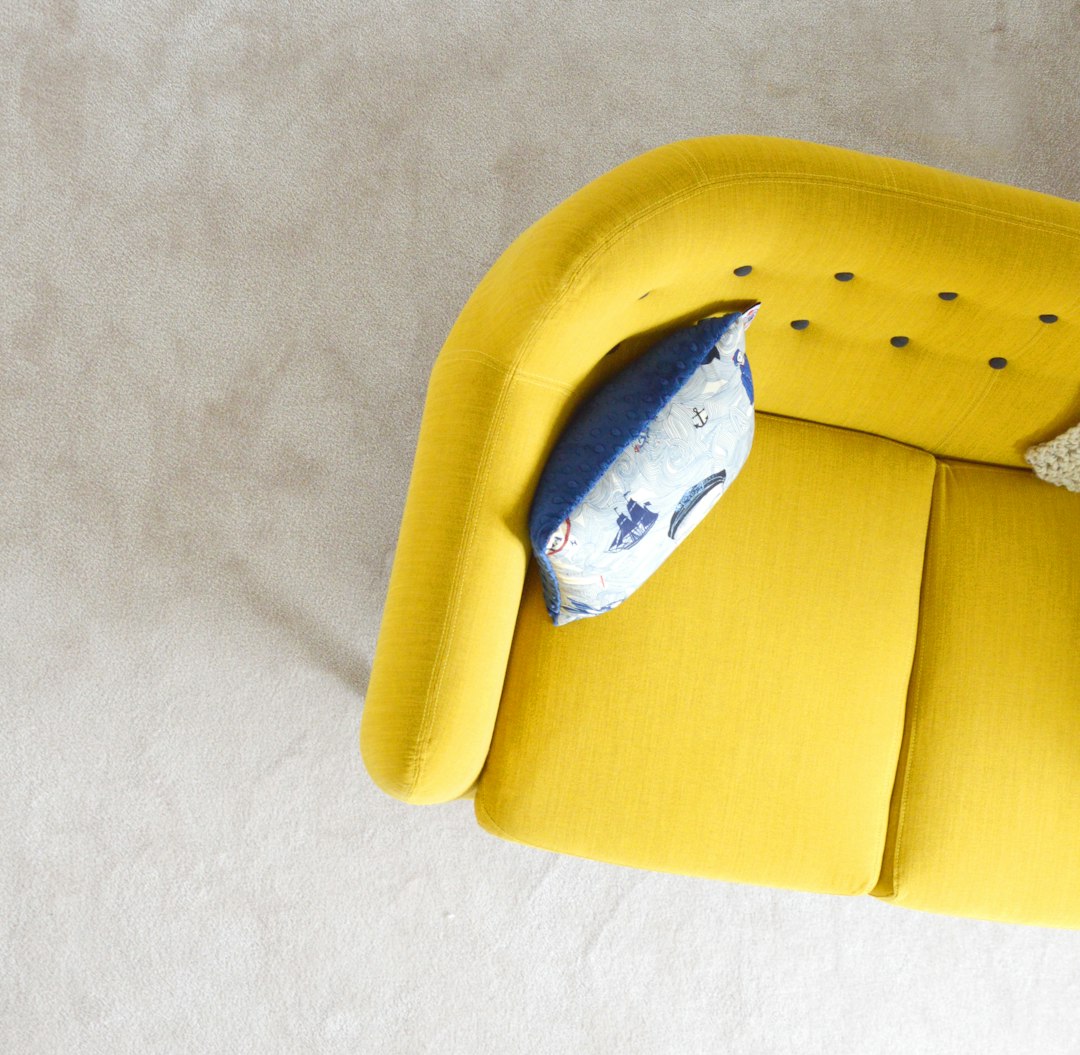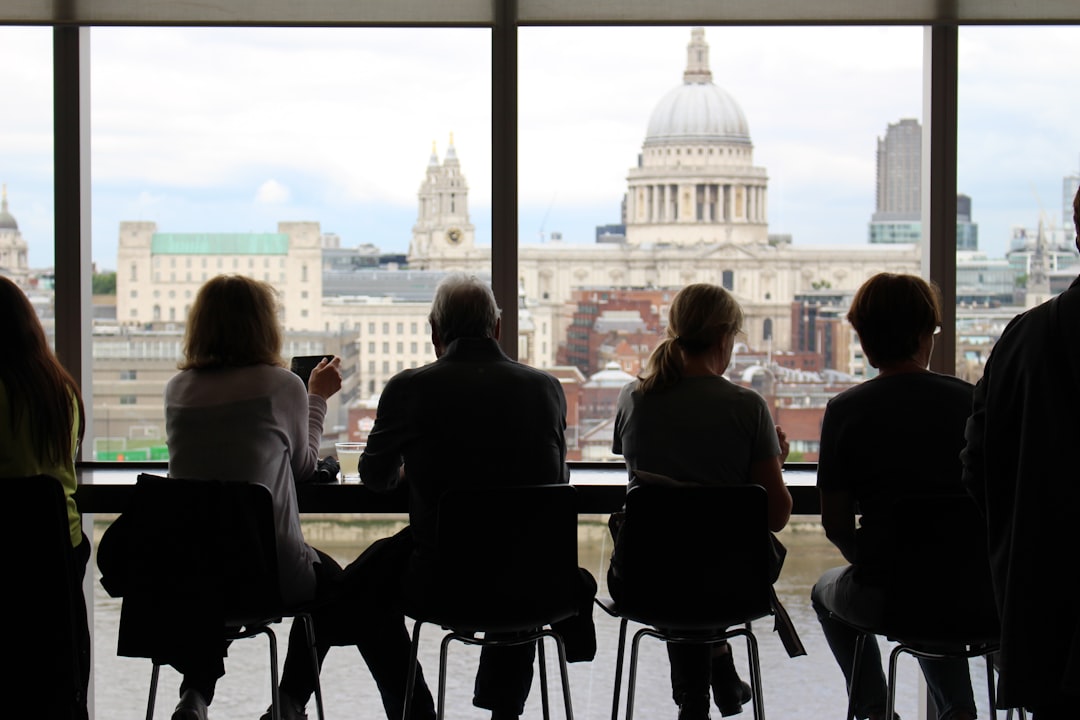Design workshops are an effective way for individuals to enhance their creativity and acquire new skills in the field of design. These interactive sessions provide a platform for participants to explore different design techniques, collaborate with others, and learn from experienced professionals. Whether you are a beginner looking to expand your design knowledge or a seasoned designer seeking fresh perspectives, attending a design workshop can greatly benefit your creative process.
One of the key advantages of design workshops is the opportunity to boost creativity. By immersing themselves in a conducive creative environment, individuals can unleash their imagination and explore innovative ideas. Engaging in hands-on activities, such as brainstorming, prototyping, and problem-solving exercises, can help overcome creative blocks and inspire fresh approaches to design challenges.
Moreover, design workshops are an excellent way to master new skills and stay updated with the latest industry trends. Professional facilitators often conduct these workshops, sharing their expertise and insights on various design techniques and tools. Participants can learn valuable tips, tricks, and best practices from these experienced mentors, ultimately strengthening their design capabilities.
In conclusion, design workshops provide a platform for individuals to enhance their creativity and acquire new skills in the field of design. These workshops offer hands-on experiences, collaboration opportunities, and access to expert guidance. By participating in such workshops, individuals can broaden their knowledge, stimulate their creativity, and ultimately become better designers.## Benefits of Design Workshops
Design workshops offer numerous benefits for individuals looking to boost their creativity and master new skills. These immersive learning experiences provide a collaborative and hands-on approach, allowing participants to explore various design techniques and concepts in a supportive environment. Here are some of the key benefits of attending design workshops:
Expanding Creativity: Design workshops provide a conducive environment for creative exploration. Participants are exposed to different design styles, methodologies, and perspectives, which can inspire fresh ideas and innovative approaches. Through interactive exercises and brainstorming sessions, individuals can tap into their creativity and develop unique solutions to design challenges.
Gaining New Skills: Design workshops offer a platform to acquire new skills and enhance existing ones. Experienced instructors and industry professionals lead these workshops, sharing their expertise and knowledge. Participants learn valuable design techniques, tools, and software applications that are relevant to their field. By acquiring these new skills, individuals can strengthen their design capabilities and stay updated with the latest trends and advancements.
Building a Professional Network: Design workshops provide an excellent opportunity to connect with like-minded individuals and build a professional network. Participants come from diverse backgrounds, including graphic design, user experience, product design, and more. By engaging in group activities, discussions, and critiques, individuals can exchange ideas, collaborate on projects, and develop lasting connections within the design community.
Receiving Constructive Feedback: Design workshops typically include interactive critiques where participants receive constructive feedback on their work. This feedback is invaluable for improving design skills and gaining insight into effective design principles. By receiving feedback from both instructors and peers, individuals can fine-tune their designs, identify areas for improvement, and develop a critical eye.
Gaining Confidence: Participating in design workshops can boost confidence levels by providing a supportive and inclusive environment. Through hands-on exercises and practical projects, individuals can see their skills in action and witness their growth. This increased confidence can translate into bolder and more innovative designs, as well as an enhanced ability to share and present creative ideas.
In conclusion, design workshops offer a range of benefits, including expanding creativity, acquiring new skills, building a professional network, receiving constructive feedback, and gaining confidence in the design field. These immersive learning experiences provide individuals with the opportunity to explore, experiment, and grow as designers, making them a valuable investment in their professional development.
Choosing the Right Design Workshop
When it comes to choosing the right design workshop, there are several factors to consider in order to boost your creativity and master new skills effectively. Making an informed decision will ensure that you make the most out of your time, effort, and resources. Here are some key points to keep in mind:
Identify your Goals and Objectives: Before selecting a workshop, it's essential to have a clear understanding of what you want to achieve. Do you want to learn a specific software or technique? Are you looking to enhance your overall design skills? By identifying your goals, you can narrow down the options and find a workshop that aligns with your specific needs.
Consider the Workshop Format: Workshops come in various formats, such as in-person sessions, online courses, or boot camps. Each format offers different advantages and disadvantages. In-person workshops provide hands-on experience and foster collaboration, while online courses offer flexibility in terms of timing and location. Determine which format suits your learning style and schedule.
Research the Workshop Provider: Look for reputable workshop providers that have a track record of delivering high-quality content. Read reviews, check testimonials, and evaluate the credentials and expertise of the instructors. A workshop led by industry experts or renowned designers will likely provide valuable insights and mentorship.
Check the Curriculum and Course Content: Scrutinize the workshop's curriculum to ensure it covers the topics you want to learn. Assess the depth of instruction, exercises, and practical assignments. Look for workshops that strike a balance between theory and hands-on practice to ensure you get a comprehensive learning experience.
Consider the Workshop Duration: Take into account the duration of the workshop. Longer workshops may allow for more in-depth learning and practice, while shorter workshops might be more suitable for specific skill enhancements or time-constrained individuals.
Review the Workshop Requirements: Assess the technical requirements and prerequisites for the workshop. Make sure you have access to the necessary software, tools, and equipment. Additionally, check if there are any prerequisites in terms of knowledge or experience. This will help you gauge if the workshop is suitable for your skill level.
Remember, choosing the right design workshop can have a significant impact on your professional growth. By considering factors such as your goals, workshop format, provider reputation, curriculum, duration, and requirements, you can make an informed decision and maximize the benefits of attending a design workshop.
Setting Clear Objectives
Setting clear objectives is a crucial step in maximizing the benefits of design workshops. By defining specific goals, participants can focus their efforts and ensure that the workshop is aligned with their desired outcomes. This section explores the importance of setting clear objectives and provides tips on how to do so effectively.
1. Aligning the Workshop with Strategic Goals
One of the primary reasons for conducting a design workshop is to align the creative process with strategic goals. Whether it's developing a new product, improving user experience, or enhancing brand identity, clear objectives help steer the workshop in the right direction. By defining these objectives before the workshop begins, participants can better understand the purpose and expected outcomes.
2. Fostering Collaboration
Setting clear objectives also fosters collaboration among workshop participants. When everyone is aware of the common goals, they can work together more effectively, leveraging their diverse expertise and perspectives. This enhances the quality of ideas and solutions generated during the workshop. Clear objectives provide a shared framework that guides discussions and decision-making throughout the workshop.
3. Measuring Success
Another benefit of setting clear objectives is the ability to measure the success of the workshop. Specific, measurable goals allow participants to assess their progress and evaluate the effectiveness of the workshop in achieving desired outcomes. This data-driven approach enables continuous improvement and provides a basis for future design workshops.
To effectively set clear objectives for design workshops, consider the following tips:
- Define SMART Objectives: Ensure objectives are Specific, Measurable, Achievable, Relevant, and Time-bound. For example, instead of stating a general objective like
Improve user experience,
a SMART objective could beReduce average website loading time by 20% within three months.
- Involve Key Stakeholders: Engage relevant stakeholders when setting objectives to gather different perspectives and ensure alignment with company goals.
- Prioritize Objectives: If multiple objectives exist, prioritize them based on their importance and feasibility to guide the workshop focus.
- Communicate Objectives Clearly: Clearly communicate the objectives to all participants before the workshop, ensuring everyone understands the goals and can contribute effectively.
Setting clear objectives is a vital step in harnessing the full potential of design workshops. By aligning the workshop with strategic goals, fostering collaboration, and measuring success, participants can drive meaningful outcomes and enhance their creative capabilities.
Hands-On Design Exercises
Design workshops offer participants the opportunity to engage in hands-on design exercises that can significantly boost their creativity and help them master new skills. These exercises are an essential component of the workshop experience and provide practical learning opportunities for participants to explore and refine their design abilities.
During these hands-on exercises, participants are encouraged to apply design principles and techniques in a supportive and collaborative environment. This enables them to put theory into practice, experiment with different ideas, and develop a deeper understanding of the design process. The hands-on nature of these exercises allows participants to gain valuable insights and feedback from both instructors and peers, enriching their learning experience.
Here are a few examples of popular hands-on design exercises frequently included in workshops:
Wireframing: Participants learn to create wireframes, which are the basic visual representations of a webpage or interface. Through this exercise, they learn to structure content, prioritize information, and understand the user experience flow.
Prototyping: Participants get the opportunity to create interactive prototypes using various tools. This exercise helps them test and refine their design concepts, identify usability issues, and iterate on their solutions.
Visual Branding: Participants explore the fundamentals of visual branding by creating logos, selecting color palettes, and designing marketing collateral. This exercise allows them to develop a cohesive visual identity and understand the importance of consistent branding.
User Research and Testing: Participants conduct user research activities, such as interviews and usability testing, to gain insights into user needs and preferences. This exercise helps them validate design decisions and make informed improvements.
Design Thinking Challenges: Participants take part in design thinking challenges that encourage them to solve real-world design problems using a structured process. These exercises foster creative problem-solving skills and encourage participants to think outside the box.
Hands-on design exercises provide invaluable opportunities for participants to apply theoretical knowledge, gain practical experience, and stretch their creative boundaries. By actively engaging in these exercises, participants can develop a deeper understanding of design principles, refine their skills, and enhance their problem-solving abilities. These exercises, combined with expert guidance and feedback, create a learning environment that supports the growth and development of aspiring designers.
To truly master new skills and boost creativity, participating in design workshops with hands-on exercises is an excellent choice for individuals looking to unleash their design potential and thrive in the ever-evolving world of design.
Collaborative Learning Environment
In a design workshop, participants are immersed in a collaborative learning environment that fosters creativity and allows them to master new skills. This section will explore the key features of a collaborative learning environment and highlight its benefits.
Active Participation: Design workshops encourage active participation from all attendees. Participants are actively engaged in hands-on activities, such as group projects, brainstorming sessions, and design challenges. This hands-on approach creates an immersive learning experience that enables participants to apply their knowledge in real-time.
Peer Interaction: Collaborative learning environments promote peer interaction, allowing participants to exchange ideas, share perspectives, and learn from each other's experiences. Through group discussions and critiques, attendees can gain insights from diverse viewpoints, enhancing their problem-solving abilities and expanding their creative thinking.
Expert Facilitation: Design workshops are facilitated by industry experts who provide guidance and support throughout the learning process. These facilitators are well-versed in the subject matter and possess the necessary skills to ensure a productive and enriching experience for all participants. Their expertise helps participants overcome challenges, receive constructive feedback, and refine their design techniques.
Cross-Disciplinary Collaboration: Design workshops often attract a diverse range of professionals from various disciplines, such as graphic design, UX/UI design, web development, and marketing. This cross-disciplinary collaboration not only fosters a rich learning environment but also exposes participants to different perspectives and approaches to design. The exchange of knowledge and ideas across disciplines can spark innovation and inspire participants to think outside the box.
Networking Opportunities: Design workshops also provide ample networking opportunities for participants to connect with fellow professionals in the industry. These connections can lead to future collaboration, mentorship, or job opportunities. Building a strong professional network is crucial in the design field, and design workshops offer a platform to make valuable connections.
In summary, design workshops offer a collaborative learning environment that facilitates active participation, peer interaction, expert facilitation, cross-disciplinary collaboration, and networking opportunities. By immersing oneself in such an environment, participants can enhance their creativity, master new skills, and build lasting connections with like-minded professionals.
Effective Critique and Feedback
Giving and receiving effective critique and feedback is a crucial aspect of design workshops as it helps participants refine their skills and improve their creative outputs. Constructive critique creates a safe and inclusive environment for sharing ideas and allows individuals to learn from each other's perspectives. Here are some key points to keep in mind when providing critique and feedback:
Focus on the work, not the person: It's essential to separate the design from the designer. Provide feedback that targets specific aspects of the work and avoid personal attacks or generalizations. By focusing on the design itself, participants can objectively evaluate their work and make improvements.
Be specific and actionable: Vague feedback isn't helpful. Instead, provide specific suggestions or examples that can guide participants in making adjustments to their design. This ensures that the feedback is actionable and encourages continuous learning and growth.
Highlight both strengths and areas for improvement: While it's important to address areas that need improvement, it's equally crucial to acknowledge the strengths of the design. By emphasizing what works well, participants can build on their strengths and refine their skills in those areas.
Encourage open discussion: Foster a culture of open communication and active participation during critique sessions. Encourage participants to ask questions, seek clarification, and engage in constructive dialogue. This collaborative approach allows for multiple viewpoints, leading to comprehensive feedback and diverse perspectives.
Use a balanced approach: Strive for a balance between positive and critical feedback. Too much negativity can discourage participants, while excessive positivity may hinder growth. A balanced approach ensures that critique is honest and encourages improvement without demoralizing participants.
Create a supportive environment: Design workshops should foster a supportive and respectful atmosphere where participants feel comfortable sharing their work and receiving feedback. Constructive criticism should be delivered with empathy and understanding, creating an environment where participants are motivated to learn and grow.
Remember, effective critique and feedback are iterative processes. Participants can apply the feedback received to refine their designs, experiment with new ideas, and ultimately enhance their creative skills. By embracing critique as a valuable tool for growth, participants can master new skills and boost their creativity.
| Key Points |
|---|
| - Focus on the work, not the person |
| - Be specific and actionable |
| - Highlight both strengths and areas for improvement |
| - Encourage open discussion |
| - Use a balanced approach |
| - Create a supportive environment |
Mastering New Design Techniques
In design workshops, participants have the unique opportunity to expand their skill set and level up their creativity by mastering new design techniques. These workshops offer a focused and immersive learning experience that can significantly enhance one's design abilities. Here are a few key benefits of participating in design workshops to master new design techniques:
1. Hands-on Learning: Design workshops provide participants with hands-on practice, allowing them to directly apply new techniques and concepts. Through practical exercises and projects, attendees can gain a deeper understanding of design principles and develop their technical skills.
2. Expert Guidance: Renowned designers and industry experts often lead design workshops, offering invaluable guidance throughout the learning process. They provide insightful feedback, share practical tips, and help participants refine their techniques. This expert-led training ensures that attendees receive accurate and up-to-date information from respected professionals in the field.
3. Collaboration and Networking: Design workshops bring together like-minded individuals who share a passion for design. These events provide an excellent opportunity to collaborate, exchange ideas, and network with fellow designers. Engaging with others in a collaborative environment can stimulate creativity and inspire participants to explore new design possibilities.
4. Exposure to Industry Trends: Design workshops often focus on the latest design trends and emerging technologies. This exposure helps participants stay on top of industry developments and adapt their skills accordingly. By learning new techniques and staying updated, designers can remain competitive in a rapidly evolving industry.
5. Skill Expansion: Design workshops offer a structured curriculum that enables participants to learn and master a variety of design techniques. Whether it's typography, illustration, user experience, or web design, these workshops cover various aspects of design, allowing attendees to diversify their skill set and become well-rounded designers.
By participating in design workshops, designers can sharpen their skills, gain valuable insights from industry experts, and keep pace with ever-changing design trends. This continuous learning and skill expansion contribute to personal and professional growth, making design workshops an indispensable resource for aspiring and experienced designers alike.
Networking Opportunities
Design workshops not only offer a valuable learning experience, but they also provide excellent networking opportunities for participants. Networking is an essential aspect of any industry, and the design field is no exception. Attending design workshops allows individuals to connect with like-minded professionals, industry experts, and potential clients or employers. Here are some ways in which workshops can help boost your networking game:
1. Diverse Attendees: Design workshops attract a diverse range of participants, including designers, artists, entrepreneurs, and individuals from various industries. This diversity offers opportunities to connect with individuals from different backgrounds and gain fresh perspectives on design.
2. Share Ideas and Insights: Workshops provide an informal environment where participants can exchange ideas, techniques, and experiences. Engaging in discussions, brainstorming sessions, and group activities allows attendees to share their knowledge and learn from one another.
3. Industry Experts and Mentors: Many design workshops feature industry experts who conduct lectures, presentations, and interactive sessions. These experts offer valuable insights, professional advice, and guidance to participants. Building a connection with these experts can open doors to mentorship opportunities and potential collaborations.
4. Establishing Relationships: Design workshops provide a conducive setting for building relationships with like-minded individuals. Informal interactions during breaks, meals, and networking events can lead to lasting connections, partnerships, and friendships.
5. Showcasing Your Work: Workshops often provide opportunities for participants to showcase their work. Whether through portfolio reviews, design competitions, or project presentations, these platforms give you a chance to gain exposure and generate interest in your talents and skills.
6. Access to Industry Events: Some design workshops are held in conjunction with larger industry events, conferences, or exhibitions. Attending these workshops grants access to these events, where you can network with a wider range of professionals and potential clients.
Overall, design workshops present an invaluable chance to expand your professional network, connect with industry leaders, and create meaningful relationships. By leveraging these networking opportunities, participants can further enhance their creativity, gain industry insights, and potentially open doors to exciting career prospects.
Workshop Selection Tips
When it comes to choosing a design workshop, there are a few factors to consider to ensure you make the most of your time and investment. Here are some tips to help you select the right workshop for your needs:
Define your goals: Start by identifying the specific skills or areas of expertise you want to enhance. This will help you narrow down the workshops that align with your objectives.
Research the workshop content: Take the time to thoroughly review the workshop's curriculum and syllabus. Pay attention to the topics, techniques, and tools that will be covered to ensure they are relevant to your desired learning outcomes.
Consider the workshop duration: Evaluate the length of the workshop and determine if it fits within your schedule. Longer workshops may provide more in-depth learning opportunities, while shorter ones can be more focused and targeted.
Check the instructor's background: Look into the instructor's qualifications, experience, and expertise. A workshop facilitated by an industry expert with a solid track record will enhance the learning experience and provide valuable insights.
Read reviews and testimonials: Seek feedback from past participants to get an understanding of their experience and the value they gained from attending the workshop. This will give you an idea of the workshop's quality and relevance.
Consider the workshop format: Understand the workshop format, whether it is a hands-on practical session, a lecture-based format, or a combination of both. Choose a format that aligns with your preferred learning style.
Evaluate the workshop cost: Compare the cost of the workshop with other similar offerings in the market. While affordability is important, remember to consider the value and quality of the workshop rather than solely focusing on price.
Check for post-workshop support: Some workshops offer additional resources, follow-up sessions, or mentorship opportunities after the workshop. This ongoing support can be valuable in helping you apply what you have learned in a real-world scenario.
By considering these tips, you will be better equipped to select a design workshop that aligns with your goals, enhances your creativity, and helps you master new skills. Remember to evaluate each workshop based on its content, instructor, format, and overall fit with your specific needs and aspirations.
Conclusion
Design workshops are a valuable tool for boosting creativity and acquiring new skills. By providing hands-on experiences, collaborative environments, and expert guidance, these workshops offer participants a unique opportunity to enhance their design abilities.
Enhancing creativity: Design workshops provide an environment that encourages participants to break free from their comfort zones and explore new ideas. Through brainstorming sessions, design exercises, and interactive activities, individuals can tap into their creative potential and unlock innovative solutions.
Mastering new skills: Workshops offer a structured and focused approach to learning. Participants can gain practical knowledge, techniques, and industry insights from experienced professionals. By learning from the experts, individuals can quickly grasp new skills and stay updated with the latest design trends.
Collaborative learning: Design workshops foster a sense of community and collaboration among participants. Working alongside like-minded individuals, attendees can learn from each other, exchange ideas, and gain fresh perspectives. This collaborative learning environment not only enhances the overall learning experience but also helps build a professional network.
Hands-on experience: Design workshops provide a hands-on approach to learning. Through practical exercises and real-world design projects, participants can apply the concepts and techniques they learn in a simulated professional environment. This experiential learning allows participants to refine their skills and gain confidence in their abilities.
Networking opportunities: Design workshops often attract a diverse group of professionals from different backgrounds. Attending these workshops provides an excellent opportunity to network with industry experts, potential clients, and like-minded individuals. Building connections in the design community can open doors to new opportunities and collaborations in the future.
In conclusion, design workshops are an effective way to boost creativity, master new skills, and connect with professionals in the industry. By immersing oneself in a collaborative learning environment and receiving expert guidance, individuals can expand their design abilities and stay at the forefront of the design field.
| Key Benefits |
|---|
| Enhances creativity |
| Provides practical skills |
| Fosters collaboration |
| Offers hands-on experience |
| Creates networking opportunities |
By embracing design workshops, individuals can continue to evolve as designers and further their professional development.








